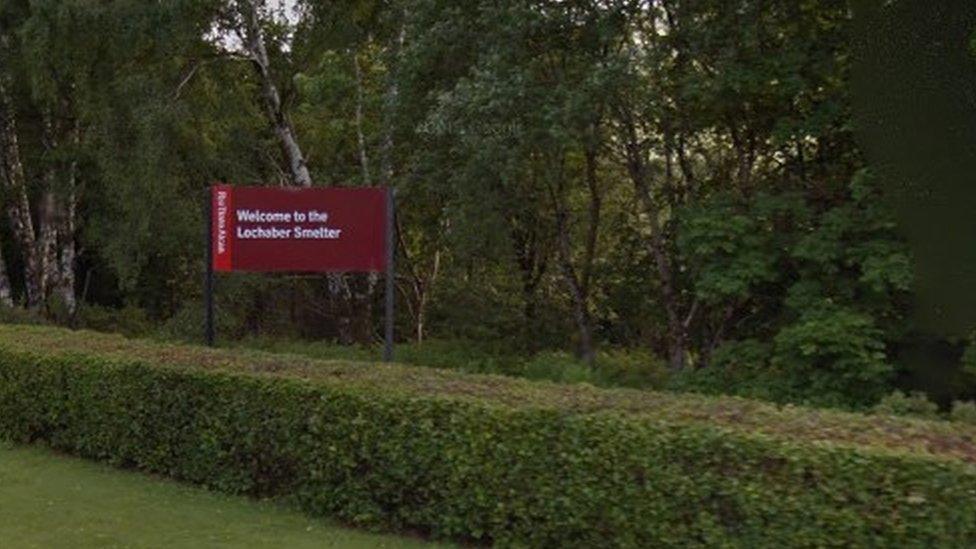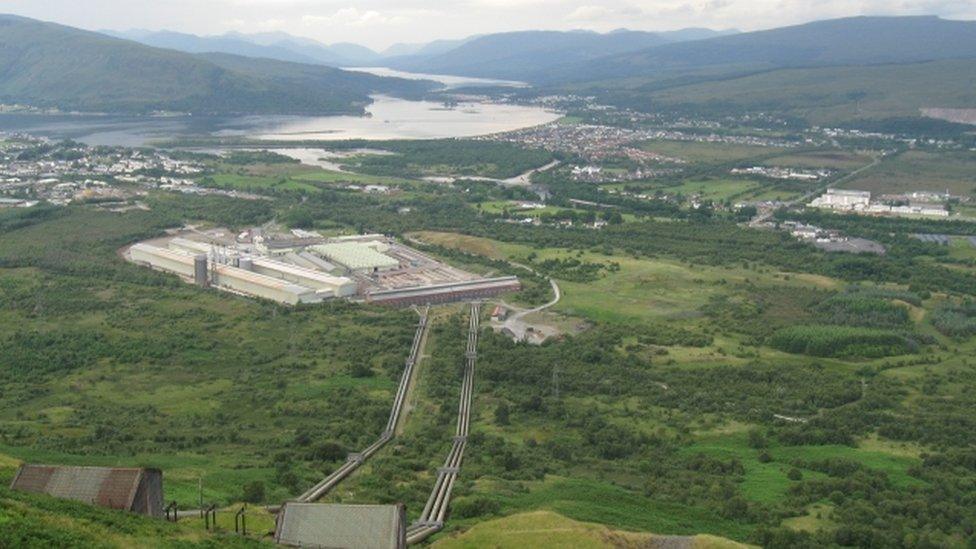Fears for future of Fort William aluminium smelter
- Published

Workers at the aluminium smelter at Fort William have been told that the owners are reviewing its operations.
The announcement from Rio Tinto said the review would include its assets in Lochaber.
The plant is one of the largest employers in the area. It is thought to support more the 160 full-time jobs.
The Scottish government said Highlands and Islands Enterprise was "engaging with the company" to understand the potential impacts of the announcement.
The smelter is Rio Tinto's only operational site in the UK and is unique in that it generates its own power from two hydro electric schemes.
One is in Fort William and the other at nearby Kinlochleven.

The Lochaber challenge
Douglas Fraser, BBC Scotland business and economy editor

The Fort William hydro-powered smelter has more than 160 employees. Around a quarter of them managers and technical specialists. It was opened in 1929. Another at Kinlochleven was closed in 2000.
When Rio Tinto Alcan also closed its smelter in Lynemouth, Northumberland in 2012, it was seen as a "significant challenge" for the sole remaining UK plant in Lochaber.
The plant manager wrote three years ago: "There were significant synergies and economies of scale that the Lynemouth operations provided in raw material supply and functional expertise and support. Lochaber is now essentially a standalone business in the UK and has had to adapt quickly to this new mode of operation".
The company owns 116,000 acres of mountain terrain, much of that its two hydro schemes' rain catchment area. It has four dams and 90 megawatts of installed capacity.
The estate stretches from Kinlochleven in the south, including the Mamore mountains and Grey Corries, to Laggan in the east, making the firm the eighth biggest landowner in Scotland.
Fort William is the smallest of nine smelters the company owns across Australia, Canada, New Zealand, France and Oman.
Last year, it produced 47,000 tonnes of aluminium, while the whole division produced 3.322 million tonnes.
On Tuesday, the London-listed company published its results for the final quarter of last year, saying it faced a "challenging market backdrop".
Chief executive Sam Walsh said the firm was "rigorously controlling" its cost base last year: "We will continue to focus on disciplined management of costs and capital to maximise cash flow generation throughout 2016."

A Scottish government spokeswoman said: "This will be an anxious time for Rio Tinto workers and their families who are affected by this news.
"The Scottish government is fully committed to working with the industry during these challenging times.
"Deputy First Minister John Swinney and Business and Minister Fergus Ewing spoke with Rio Tinto this morning and HIE is engaging with the company to understand the potential impacts of the announcement.
"Further initiatives will be considered as the situation develops."